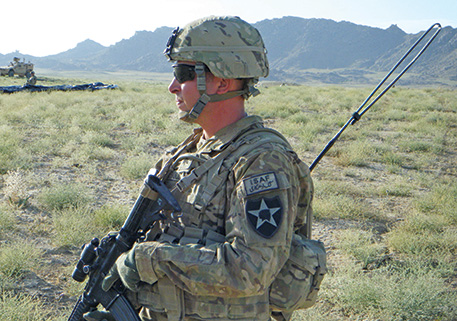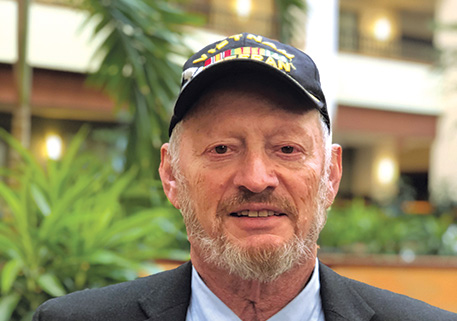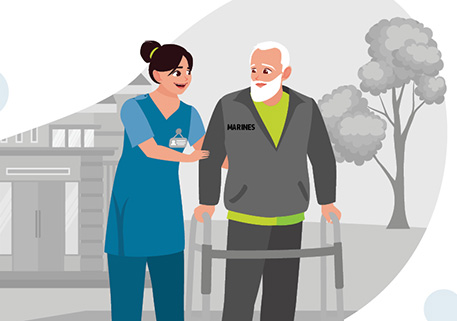As the nation continues to return to normalcy following more than two years of COVID-19 upending American life, more veterans are likely to seek care from the Department of Veterans Affairs. Patients that delayed care throughout the pandemic are expected to return to VA in droves, including those with new medical necessities from the residual effects of COVID-19.
To help meet these needs, DAV recommends VA receive more than $121 billion for veteran health care alone, according to the 2022 Independent Budget.
The Independent Budget stretches back more than 30 years and is a collaboration between DAV, the Veterans of Foreign Wars and Paralyzed Veterans of America. The annual report seeks to guide Congress and offers budget and policy recommendations for the Department of Veterans Affairs for the following year.
“Given the uncertainty surrounding VA’s future resource needs, Congress and the Administration must regularly review and be prepared to adjust funding levels whenever necessary to ensure VA has sufficient resources to care for our nation’s ill and injured veterans,” the report states.
“As we enter into 2022, COVID’s impact remains a challenge for VA, with the spread of the virus and disruptions to health care systems continuing,” said Randy Reese, executive director of DAV Washington Headquarters.
“In this environment, we made cautious recommendations based on historical trends to ensure the needs of our nation’s ill and injured veterans are met.”
Specifically, the report calls for increasing funds for the Caregiver Support Program by nearly $500 million, $395 million more for programs addressing veteran homelessness and providing an additional $160 million for health care for women and minority veterans.
The Independent Budget also recommends increasing funding for the Veterans Benefits Administration—the arm of the VA that helps veterans receive benefits, such as compensation, educational and financial resources—by $510 million, bringing the total figure to $3.9 billion for fiscal year 2023.
Despite years of budget increases, health care vacancies within VA continue to beleaguer the department, causing substandard care.
“The lack of adequate health care staffing has been a major driver of longer waiting times for veterans seeking VA care, and ultimately has the effect of suppressing the true level of veterans’ demand for care,” the report states.
However, despite this trend, VA “was able to more expeditiously hire and onboard medical personnel” during the pandemic, according to the report. The Independent Budget recommends an additional $1.8 billion in funding to build off that recent success.
DAV took part in a hearing before the House Veterans’ Affairs Committee in April, along with its other Independent Budget partners, and praised the proposed VA budget put forth by the White House.
“Overall, the proposed budget for the general operating expenses is a 13% increase over fiscal year 2022, and the [independent budget veteran service organizations] are very pleased with the strong budget proposal from VA,” said DAV Deputy Legislative Director Shane Liermann.






